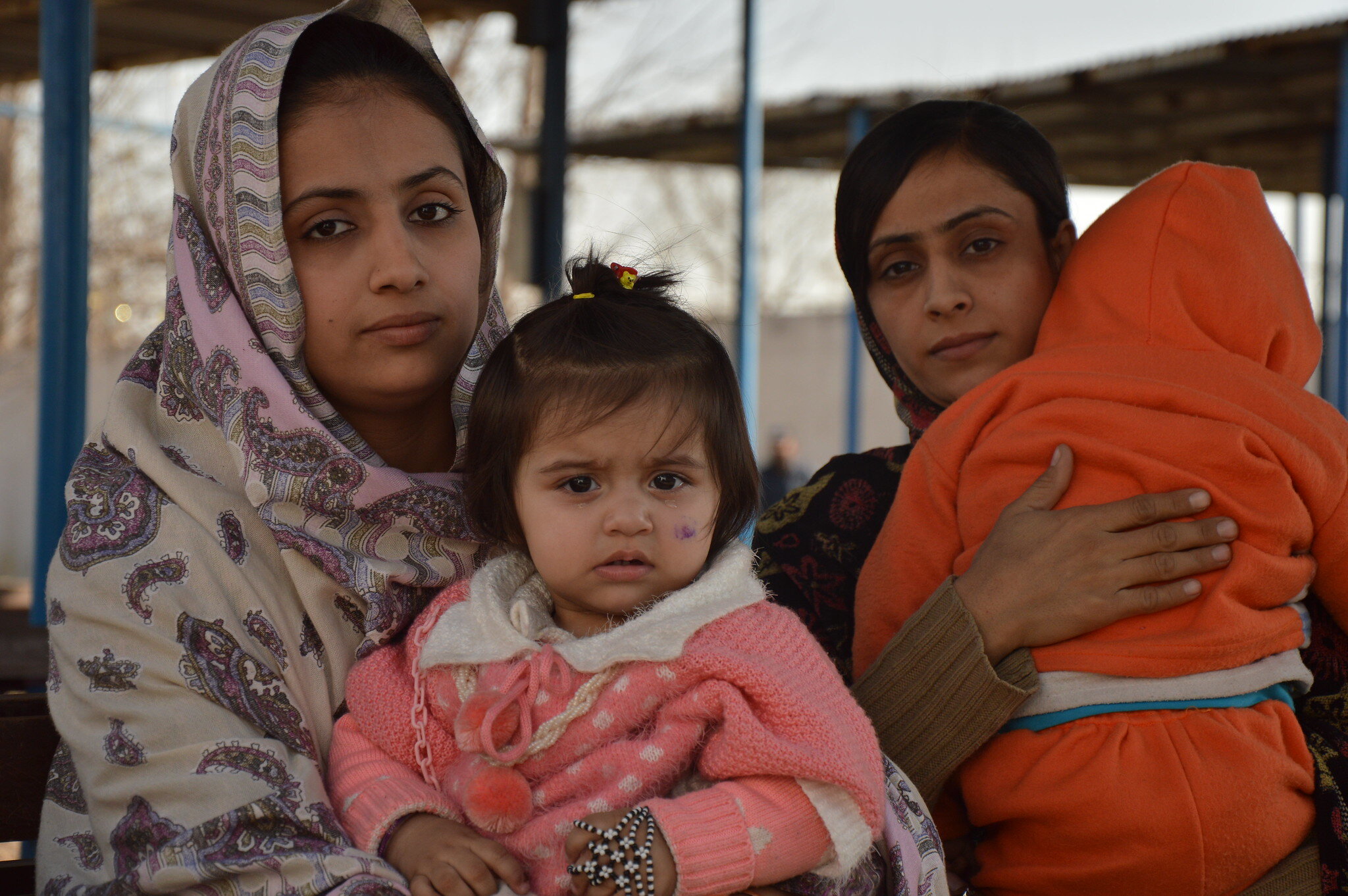
Despite worsening economic and humanitarian situation in Afghanistan, the Pakistani government is intensifying its crackdown on Afghan refugees, adding new movement restrictions on top of a wave of detentions and deportations. On March 18, some 330 Afghans were returned from Pakistan, including 70 who had been imprisoned for lacking documentation—just the latest to be sent home as Islamabad doubles down on its hardline approach.
In recent months, thousands of Afghan refugees, including women and children, have been rounded up and imprisoned for overstaying their visas or lacking adequate documentation. More than 1,000 are currently imprisoned and at least three have died in custody in as many months.
On March 20, the government announced a new policy curtailing the movement of Afghan citizens by requiring them to register with police if they travel between cities or provinces.
Refugee advocates say the situation in Pakistan, where millions of Afghan refugees were also affected by last year’s catastrophic floods, has deteriorated rapidly in recent months.
Moniza Kakar, a lawyer assisting Afghan refugees in Pakistan’s largest city of Karachi, has shared evidence on Twitter of police binding children with rope, imprisoning them for months, and arresting even those who hold proper documentation.
Interviewed by The New Humanitarian, Kakar said the arrests have not stopped people coming. “More and more I see human rights defenders… and a lot of young girls…since the Taliban have banned education. They put their heads in my lap and weep,” she said, adding that most people cross simply because they have no other choice.
More than 600,000 Afghans have fled to neighboring Pakistan since the Taliban came to power in August 2021, bringing the number of Afghan refugees in the country to 3.7 million, only 1.32 million of whom are registered with the UN’s refugee agency, UNHCR.
At the end of 2022, the Pakistani government announced it would not extend a general amnesty permitting undocumented Afghans to remain in the country.
— Amel Ghani for The New Humanitarian, March 23 (Condensed)
Photo: ECHO/Pierre Prakash via Religion Unplugged





UN calls on Pakistan to halt mass deportation of Afghan refugees
The UN human rights experts called upon Pakistan Oct. 17 to discontinue the planned deportation of Afghan nationals from the country. Pressure from rights groups has increased since Pakistan Interior Minister Sarfraz Bugti announced the deportation plan on Oct. 3. The plan could result in the deportation of 1.4 million Afghans from the country by Nov. 1, the deadline set by Bugti. (Jurist)
Amnesty calls on Pakistan to halt deportation of Afghan refugees
Amnesty International has called on Pakistan to stop the “continued detentions, deportations and widespread harassment of Afghan refugees.” More than 170,000 Afghans have returned to Afghanistan since mid-September, when the Pakistani government issued a Nov. 1 deadline for all those without the right documentation to leave. The Taliban has set up transit centers near border crossing points, dispatched military vehicles to transport returnees, and set up mobile health centers for returnees, as concerns grow of a border refugee crisis. (TNH)
Pakistan high court holds hearings on Afghan refugee deportation
Pakistan’s Supreme Court heard arguments Dec. 1 on a petition to halt the country’s removal of Afghan refugees. The petition was signed by a group of human rights activists, lawyers and politicians in November following the government’s Oct. 3 decision to deport undocumented Afghan migrants back to Afghanistan. (Jurist)
Afghan returnees from Pakistan approach half million
More than 450,000 Afghans have returned to Afghanistan since mid-September, after Islamabad issued an ultimatum for all those without the right documentation to leave the country by November or risk detention and deportation, according to a consortium of NGOs operating in Afghanistan. The majority of returnees—some 80%—are women and children; especially worrying given the fact that the Taliban-led government has severely limited the employment opportunities for women and still doesn’t allow girls above the sixth grade to continue formal education. (TNH)